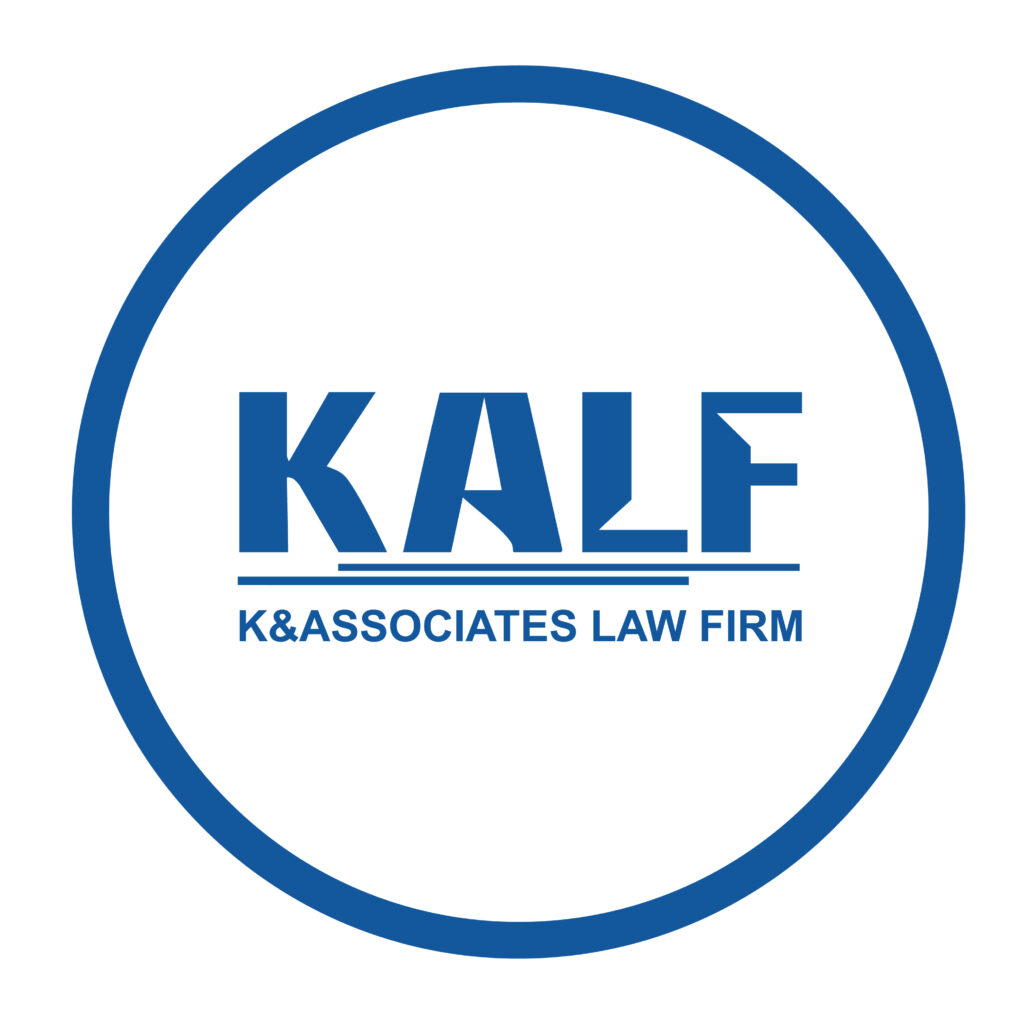-
What is the establishment of a foreign-invested company?
Foreign-invested company formation refers to the establishment of a company or enterprise in one country, where initial investment capital or equity comes from investors, organizations, or individuals from another country.
The establishment of a foreign-invested company enhances investment activities, contributes to economic development, improves production and technical processes, as well as promotes economic relations and cooperation between countries. This process should comply with the laws and policies of the destination country.

-
Procedures for establishing a foreign-invested company
2.1. In the form of investors contributing capital from the beginning
Step 1: Prepare dossiers for issuance of Investment Registration Certificate
A dossier of application for an Investment Registration Certificate includes:
- A written request for implementation of an investment project.
- Documents proving legal status:
- For institutional investors: a copy of the Certificate of Incorporation or other equivalent document confirming the legal status for institutional investors.
- For individual investors: Copy of identity card/identity card or passport for individual investors.
- An investment project proposal includes the following contents: investor implementing the project, investment objectives, investment scale, investment capital. and capital mobilization plan, location, duration, investment schedule, labor demand, proposal for investment incentives, impact assessment, socio-economic efficiency of the project.
- Proof of financial capacity of the investor:
- For institutional investors: financial statements of the last 02 years of the investor. Or pledge financial support from the parent company. Or pledge financial support by the financial institution. Or guarantee on the financial capacity of the investor. Or documents explaining the financial capacity of the investor.
- For individual investors: confirmation of account balance, passbook;
- Head office lease contract, Documents proving the lessor’s leasing right (Certificate of land use right, Construction permit, Certificate of business registration with real estate business function of the lessor or equivalent documents).
- Proposing land use needs; in case the project does not request the State to allocate land, lease land, permit change of land use purpose, submit a copy of the site lease agreement or other document certifying that the investor has the right to use the location for the implementation of the investment project;
- Explanation on use of technology applied to investment projects, for projects using technologies on the list of technologies restricted from transferring in accordance with the law on technology transfer, including: technology name, technology origin, technological process diagram; main technical parameters, usage status of machinery, equipment and main technological lines;

Step 2: Submit the application for issuance of the Investment Registration Certificate
Procedures for issuance of investment registration certificates for investment projects not subject to decisions on investment policies shall be carried out by investors as follows:
- Online declaration of information on investment projects on the National Foreign Investment Information System:
Investors declare information about investment projects online on the National Foreign Investment Information System. Within 15 days from the date of online declaration, the investor shall submit the dossier for issuance of the Investment Registration Certificate to the Investment Registration Agency.
After the Investment Registration Office receives the dossier, the investor is granted an account to access the National Foreign Investment Information System to monitor the processing of the dossier.
The investment registration agency shall use the National Foreign Investment Information System to receive, process and return the results of investment registration dossiers, update the status of application processing and issue codes for investment projects.
- Submit dossiers directly for issuance of investment registration certificates
Department of Planning and Investment of the province where the company is headquartered:
– Investment projects outside industrial parks, export processing zones, hi-tech parks, economic zones;
– Investment projects on infrastructure development of industrial parks, export processing zones, hi-tech parks and investment projects in industrial parks, export processing zones and hi-tech parks in localities where management boards of industrial parks, export processing zones and hi-tech parks have not been established.
– Investment projects implemented in many provinces and centrally-run cities;
– Investment projects are implemented simultaneously inside and outside industrial parks, export processing zones, high-tech parks and economic zones.
– Management boards of industrial parks, export processing zones, high-tech parks and provincial economic zones where the company is headquartered.
– Investment projects on infrastructure development of industrial parks, export processing zones and hi-tech parks;
– Investment projects shall be implemented in industrial parks, export processing zones, hi-tech parks, economic zones.
Step 3: Issuance of Investment Registration Certificate
Within 15 days from the date of receipt of a complete dossier, the investment registration agency shall issue an Investment Registration Certificate. In case of refusal, it must notify the investor in writing clearly stating the reason.
Step 4: Prepare the dossier and submit the dossier for issuance of the Certificate of Business Registration
After a foreign-invested company is granted an investment registration certificate, the investor shall carry out procedures for issuance of an enterprise registration certificate similar to the procedures for establishing a Vietnamese capital company.
A dossier of application for an enterprise registration certificate includes:
- Application for business registration
- Company’s charter
- List of members (for limited liability companies with two or more members) or List of founding shareholders and shareholders being foreign investors (list of authorized representatives if any shareholders are organizations).
- Copies of the following documents: Citizen identity card, National identity card, Passport or other lawful personal identification of individual members;
- Establishment decision, Business Registration Certificate or other equivalent document of the organization and authorization document; Citizen identity card, identity card, passport or other lawful personal identification of the authorized representative of the member being an organization
- For members being foreign organizations, a copy of the Business Registration Certificate or equivalent document must be consular legalized;
- Decide on capital contribution and appoint managers; List of authorized representatives (for members being organizations);
- Investment registration certificates for investors have been issued.
Competence to issue Business Registration Certificate: Department of Planning and Investment of the province where the company’s head office is located

Step 5: Announce the contents of business registration information
After being granted the Certificate of Business Registration, an enterprise must publicly announce it on the National Business Registration Portal. At the same time, the disclosure fee must be paid in accordance with the provisions of law. The contents of the announcement include the contents of the Certificate of Business Registration and the following information:
- Business lines;
- List of founding shareholders; list of shareholders being foreign investors, for joint-stock companies (if any).
- Fees for disclosure of enterprise registration contents:
- The request for publication of enterprise registration contents and payment of fees for disclosure of enterprise registration contents shall be made at the time the enterprise submits the enterprise registration dossier.
Step 6: Engrave the company’s seal
A seal includes a seal made at a seal engraving establishment or a seal in the form of a digital signature in accordance with the law on e-transactions.
The enterprise decides on the type of seal, quantity, form and content of the seal of the enterprise, branches, representative offices and other units of the enterprise.
The management and retention of the seal shall comply with the provisions of the company’s charter or regulations promulgated by the enterprise, branch, representative office or other unit of the enterprise bearing the seal. Enterprises use seals in transactions in accordance with the provisions of law.
Step 7: Issuance of a business license or operating license
Issuance of a business license only applies to companies doing business in the field of retailing goods to consumers or setting up retail establishments of goods.
For some industries, after completing the company establishment procedures, foreign investors must apply for licenses related to operation conditions. For example: food business applying for food hygiene and safety permits, environment. Educational Business: Training license. Travel business: Travel license…
General conditions for foreign investors to be granted a business license in the field of retail sale of goods:
- In case foreign investors belonging to countries or territories acceding to treaties to which Vietnam is a contracting party commit to open markets for goods purchase and sale activities and activities directly related to goods purchase and sale.
- Satisfy market access conditions in treaties to which Vietnam is a signatory.
- Have a financial plan to carry out activities of applying for a business license.
- No more overdue tax debts in case they have been established in Vietnam for 1 year or more.
- In case the foreign investor does not belong to a country or territory acceding to treaties to which Vietnam is a contracting party.
- Satisfy market access conditions in treaties to which Vietnam is a signatory.
- Have a financial plan to carry out activities of applying for a business license.
- No more overdue tax debts in case they have been established in Vietnam for 01 year or more.
Conditions by industry to be granted a license for retail trading in goods:
- In accordance with the provisions of specialized laws.
- In accordance with the level of competition of domestic enterprises in the same field of operation.
- The ability to create jobs for domestic workers.
- The possibility and extent of contribution to the state budget.
Dossier of issuance of a license for retail sale of goods to a foreign-invested enterprise:
- Application for a business license (Form No. 01 in the Appendix enclosed with Decree 09/2018/ND-CP).
- The explanation reads:
- Explanation of conditions for granting corresponding business licenses as prescribed in Article 9 of Decree 09/2018/ND-CP.

Business plan: Description of contents and methods of conducting business activities; presentation of a business plan and market development; demand for labor; assessment of impacts and socio-economic efficiency of business plans.
Financial plan: Report on business results on the basis of audited financial statements of the latest year in case it has been established in Vietnam for 01 year or more; explanation of capital, capital sources and capital mobilization plans; accompanied by financial documents.
Business situation of goods purchase and sale activities and activities directly related to goods purchase and sale. Financial situation of foreign-invested economic organizations up to the time of application for a business license.
- Documents of the tax authorities proving that there is no longer any overdue tax owed.
- Copy: Certificate of business registration; Certificate of investment registration of the project on goods purchase and sale activities and activities directly related to goods purchase and sale (if any).
Competence to grant licenses for retail sale of goods to foreign-invested enterprises. Department of Industry and Trade where the enterprise is headquartered.
Processing time: about 30-45 working days.
Step 8: Open a foreign direct investment account
After completing the procedures for establishing a foreign-invested company, the investor shall open a foreign direct investment capital account. Investors shall transfer capital to this capital account according to the time limit for capital contribution recorded in the Investment Certificate.
In addition, foreign-invested companies need to open more trading accounts to receive money from investment capital accounts to carry out revenue and expenditure procedures in Vietnam.
Step 9: The foreign-invested company shall carry out the following procedures for company establishment
After the company is established, investors need to carry out the same post-establishment procedures as Vietnamese companies. Concrete:
- Hang signs at headquarters.
- Register digital signatures for electronic tax payment and tax reporting via the Internet
- Buy an electronic digital signature to make electronic tax payment
- Offer to issue electronic invoices.
- Make reports on the implementation of the project as prescribed in the Investment Registration Certificate.
- Declare and pay taxes as prescribed.
2.2. In the form of capital contribution, share purchase
Step 1: Establish a company with Vietnamese capital
Foreign investors can only contribute capital to buy shares when there are already Vietnamese companies. In case the company establishment procedures have not been carried out, the Vietnamese partner must proceed with the establishment of a 100% Vietnamese-owned company.
Step 2: Prepare registration dossiers for purchase of contributed capital and purchase of shares of foreign investors
Dossiers of registration of capital contribution, purchase of contributed capital, purchase of shares of foreign investors in Vietnamese enterprises:
- Documents on registration of capital contribution, share purchase, capital contribution. A document of registration of capital contribution, share purchase or capital contribution includes the following contents: information on economic organizations to which foreign investors plan to contribute capital, purchase shares or contributed capital. The percentage of ownership of charter capital of foreign investors after capital contribution, share purchase and capital contribution to economic organizations.
- Copy of identity card, identity card or passport for individual investors. A copy of the Certificate of Incorporation or other equivalent document confirming the legal status of an institutional investor.
- Written agreement on capital contribution, share purchase, purchase of contributed capital between foreign investors and economic organizations receiving capital contribution, purchase of shares and contributed capital;
- A written declaration (enclosed with a copy) of the land use right certificate of the economic organization receiving capital contribution, shares or capital contribution of foreign investors.

Step 3: Submit the application for registration to buy contributed capital or buy shares of foreign investors
Foreign investors submit dossiers at the Investment Registration Office – Department of Accounting and Investment where the enterprise’s head office is located.
Within 15 working days after receiving a valid dossier, the Department of Accounting and Investment shall issue a Notice of satisfaction of conditions for capital contribution, share purchase, contributed capital and Vietnamese enterprises.
Step 4: Foreign investors make capital contribution, purchase of shares, contributed capital and Vietnamese enterprises.
In case the foreign investor contributes more than 51% capital, the Vietnamese company shall open a direct investment capital account. Investors make capital contributions, transfer capital through direct investment capital accounts.
Members and shareholders transferring capital shall declare and pay tax when transferring according to the law on personal income tax, corporate income tax (if any).
Step 5: Change the business registration certificate
After the foreign investor completes the capital contribution, the company carries out procedures for changing the enterprise registration. The change of business registration to record the capital contribution or share purchase of foreign investors in the enterprise registration dossier at a competent state agency.
Dossier of change of business registration certificate:
- Notice of change of business registration contents;
- Decision on the change of company;
- Minutes of meetings on the change of company;
- The transfer contract and documents certifying the completion of the transfer are certified by the legal representative of the company;
- List of capital contributors or List of shareholders who are foreigners;
- Notarized copy of the investor’s passport / business registration certificate.
Competence to grant changes to the Certificate of Business Registration:
Department of Planning and Investment of the province where the company is headquartered.
Step 6: Issuance of Business Licenses and Operating Eligibility Licenses
-
Dossier of establishment of a foreign-invested company in Vietnam
A dossier of establishment of a foreign-invested company in Vietnam includes a number of important documents required to submit to the investment and business registration authority. Here is a list of common documents to prepare:
- Personal documents of investors: National identity card or passport (for foreigners).
- Copy of foreign investment capital certificate or certificate of recognition of investment capital of foreign investors.
- Copy of bank guarantee letter (if necessary): Letter of guarantee from the bank to prove the financial ability of the investor.
- Copy of investment decision: Investment decision of competent agencies or investment agreement.
- Certificate of business registration or business registration (for an already existing company): In case of converting the type of business or buying shares of an already existing company.

- Copy of land use right certificate or ground lease contract: For documents related to business location.
- Invitation letter from foreigners to hold the position of deputy director or director (if any): Invitation letter from the company for important positions.
- Copy of business plan: Detailed description of goals, size, expected profit, business methods, etc.
- Copy of the company’s charter: A copy of the company’s charter, including regulations on management, rights and obligations of shareholders.
- Copy of the book of the legal representative of the company: For the legal representative of the company.
This is just an overview list and requirements may vary according to the type of company, legal regulations, and specific requirements of regulatory authorities. Before applying, it is recommended to contact the regulatory authority or seek assistance from a legal consultant.
-
Regulations on foreign investment capital contribution
Specific regulations on foreign investment capital contribution will depend on the business sector and legal regulations of each country. Investors need to thoroughly understand and comply with these regulations when making investments in Vietnam through our KALF Law Firm.
- Form of capital contribution:
Foreign investors may contribute capital in cash, assets, land use rights, industrial property rights, labor, technology, business rights, and other types of assets in accordance with the provisions of law and investment contracts.
- Time limit and method of payment of funds:
The time limit for capital payment should comply with the provisions of law and the investment contract.
The method of payment of capital should be clearly agreed upon in the contract, including transfer, initial capital contribution, or other methods.
- Regulations on capital ownership ratio:
Regulations on the percentage of capital ownership between related parties in foreign investment companies should be clearly specified in the investment contract.
- Regulations on capital rights and interests:
Regulations on the rights and interests of capital contributors should be clearly specified in the investment contract and the provisions of law.
- Regulations on capital supervision and reporting:
Regulations on monitoring, inspection and reporting on capital situations should be followed to ensure transparency and legal compliance.
- Regulations on capital conversion and transfer:
Regulations on the conversion of currencies, foreign currencies or the transfer of capital ownership should be clearly regulated.
- Procedures for issuance of certificates of foreign investor processes
- Apply for an investment license: send an application for an investment license to an investment management agency, which usually needs to be accompanied by an investment plan, information about the project and investment scale.
- Business registration: register a company and apply for a business license at the country’s business registry
- Complete legal procedures related to registration, confirmation of investment capital, interests and obligations of investors.
- Register and comply with tax and financial regulations related to the business.
- Carry out business activities in accordance with the law and initial objectives.
- Procedures for foreigners investing in Vietnam to contribute capital or purchase shares of Vietnamese companies (FPI)
- Research and Select the field of investment: identify the field and industry in which you want to invest and buy shares.
- Apply for an investment license: for the purchase of shares or investment in an existing project, foreigners need to apply for an investment license from the investment management authority in Vietnam.
- Complete legal procedures in accordance with Vietnamese law, including confirmation of investment capital, rights and obligations of investors.
- Make capital transfers or share purchases according to the regulations of the target company.
- Register transactions and carry out the process of buying shares or contributing capital to the company.
- Update information on invested capital and shares purchased into management systems.
- Comply with tax and accounting regulations applicable to foreign investors.
Note that the specific process may vary by industry and type of investment. It is important to comply with regulations and carry out procedures in strict accordance with Vietnamese laws. To ensure full compliance, foreign investors need assistance from KALF’s experienced lawyers and legal advisors.

-
Advantages and disadvantages of procedures for foreigners investing in Vietnam
Advantage:
- Vietnam is considered a potential market with a large population and stable economic growth.
- Low labor cost: As one of Vietnam’s competitive advantages, low labor costs help reduce production and business costs.
- Industries and business sectors in Vietnam are diverse, from manufacturing and services to agriculture and technology.
- The Vietnamese Government applies many preferential policies, tax reductions and creates favorable conditions for foreign investors.
- Transport, telecommunications infrastructure and industrial parks are being invested and developed, creating favorable conditions for businesses.
- Investing in Vietnam helps strengthen relations and the international economic community, opening up opportunities for global cooperation.

Shortcoming:
- The legal system and investment procedures in Vietnam can be complex and require a deep understanding of legal regulations.
- Political and market fluctuations can negatively affect business and investment.
- For foreign investors, remote company management can be difficult in terms of management and business performance.
- Exchange rate fluctuations and increased inflation can affect cost prices, profits, and investment decisions.
- Diverse and fiercely competitive business markets can put pressure on new businesses and investments.
Investing in Vietnam requires careful consideration of benefits and risks. Investors need to research and probe thoroughly before making investment decisions.
-
Competent agencies issuing investment certificates for establishment of foreign-invested capital companies
Pursuant to the provisions of Article 39 of the Law on Investment 2020, there are the following provisions:
“Article 39. Competence to grant, modify and revoke the Investment Registration Certificate
- Management boards of industrial parks, export processing zones, hi-tech parks and economic zones shall grant, adjust and revoke investment registration certificates for investment projects in industrial parks, export processing zones, hi-tech parks or economic zones, except for the case specified in Clause 3 of this Article.
- The Department of Planning and Investment shall grant, adjust and revoke investment registration certificates for investment projects outside industrial parks, export processing zones, hi-tech parks or economic zones, except for the case specified in Clause 3 of this Article.
- The investment registration agency where the investor implements the investment project, locates or plans to set up an executive office for the implementation of the investment project shall grant, adjust and revoke the Investment Registration Certificate for the project
The following investments:
- a) Investment projects implemented in 02 or more provincial-level administrative units;
- b) Investment projects implemented inside and outside industrial parks, export processing zones, hi-tech parks and economic zones
- c) Investment projects in industrial parks, export processing zones, hi-tech parks, economic zones where management boards of industrial parks, export processing zones, hi-tech parks, economic zones have not been established or are not under the management of management boards of industrial parks or export processing zones, Hi-tech parks, economic zones.
- The agency receiving investment project dossiers is the agency competent to grant investment registration certificates, except for the cases specified in Articles 34 and 35 of this Law.”
Thus, the competent authority issuing the Investment Registration Certificate in this case shall be granted an Investment Registration Certificate by the Industrial Park Management Board and the investment registration agency where the investor implements the investment project.

- KALF’s Foreign Investment Company Establishment Consulting Services
KALF’s consulting services for the establishment of companies with foreign investment typically encompass the following steps and activities:
- Legal consulting and current legal regulations: Providing information on relevant legal regulations regarding foreign investment in Vietnam. Assessing the requirements, conditions, and necessary procedures for establishing a foreign-invested company.
- Planning and strategy development: Advising on options for company structure, business sectors, investment capital, and management. Developing strategic plans for the new company, proposing optimal financial, tax, and management solutions.
- Facilitating company registration procedures: Guiding and assisting clients in preparing and submitting the required documents for company registration. Monitoring and overseeing the processing of documents to ensure compliance with procedures and processing timelines set by the authorities.
- Handling documents and legal matters: Conducting procedures related to investment licenses, business registration certificates, and relevant documents. Advising and assisting in drafting contracts, agreements, and other legal documents related to the company’s business activities.
- Tax and financial advisory: Providing information on tax regulations for foreign-invested enterprises. Advising on financial management, financial reporting, and related financial matters.
- Management support and development: Supporting the day-to-day operations of the company. Providing regular advice on business development, market expansion, and enhancing the company’s operational efficiency in the Vietnamese market.
KALF’s consulting services for the establishment of companies with foreign investment aim to provide clients with professional support and advice to ensure that the establishment and operation of the company meet all legal requirements and are effectively conducted.
-
Comparison of Various Forms of Foreign Investment in Vietnam
The choice of investment forms depends on the investor’s goals, sectors, and financial capacity. Most importantly, investors need to study and comply with Vietnam’s laws and regulations to ensure effective and legal investments.
- Direct investment:
Pros: Direct management and control of the business; involvement in strategic decisions and project development.
Cons: Requires a good understanding of Vietnam’s business culture, market, and legal regulations; substantial investment of time and resources.
- Public-Private Partnership (PPP) investment:
Pros: Risk and benefit sharing with the government; financial support from the government; reduces financial pressure on the initial investment.
Cons: Prolonged project approval time and processes; requires high-level management and negotiation skills.
- Build-Operate-Transfer (BOT), Build-Own-Operate (BOO), Build-Transfer (BT) contracts:
Pros: Profit from operations and project management after construction; no need for significant initial investment.
Cons: Challenges in negotiation with the government and local partners; pressure to ensure economic efficiency and social benefits.
- Real estate investment:
Pros: Stable investment, increasing value over time; contributes to local infrastructure and economy.
Cons: Market fluctuations, complex legal regulations, need to understand the local market well.
- Stock market investment:
Pros: Potential for quick returns; flexibility in management and capital withdrawal.
Cons: High market volatility and risks; need a good understanding and evaluation of the stock market.
- Investment in investment funds:
Pros: Risk reduction in investment; managed by experienced fund managers.
Cons: No decision-making power in managing fund assets; fund management fees affect profits.

-
Frequently Asked Questions
What are the forms of foreign investment in Vietnam?
– Establishing economic organizations
– Capital contribution, share purchase, capital contribution purchase.
– Implementing investment projects.
– Investing under the BCC contract form.
– Other investment forms, new economic organization forms as regulated by the Government.
Do foreign-invested companies in Vietnam receive investment incentives?
Yes. However, foreign-invested companies are eligible for investment incentives similar to Vietnamese enterprises. To enjoy these incentives, companies need to meet the conditions stipulated by Vietnamese law.
What taxes does a foreign-invested company in Vietnam have to pay?
Similar to Vietnamese enterprises, foreign-invested companies are required to pay several basic taxes, including Value Added Tax (VAT), Special Sales Tax, Corporate Income Tax, and Import-Export Tax (if engaged in import-export activities).
When does a foreign-invested company need to obtain an investment certificate?
Cases requiring the procedure for granting the Investment Registration Certificate include:
– Investment projects of foreign investors;
– Investment projects of economic organizations: having foreign investors (economic organizations having foreign investors) holding over 50% of the charter capital or having a majority of members being foreigners in the case of an economic organization being a partnership;
– New economic organizations as stipulated by the Government.
What types of foreign-invested companies can be established in Vietnam?
– Establishment of a partnership company (though this form is rarely chosen in practice)
– Establishment of a Single-Member Limited Liability Company (LLC)
– Establishment of a Multi-Member Limited Liability Company (LLC) with two members or more
– Establishment of a joint-stock company
Can a foreign investor establish a sole proprietorship in Vietnam?
According to Vietnamese law, foreign investors are not allowed to establish sole proprietorships.
In conclusion, KALF has provided comprehensive information about foreign investment and related issues to help readers gain a better understanding. During the research process, if you have any questions, please feel free to contact us through the following information:
K & ASSOCIATES LAW FIRM
Address: Floor 04, No. 05 Nguyen Thi Nhung, Van Phuc Urban Area, Thu Duc City, HCM.
Email: info@k-associates.vn
Phone: (+84) 338747705 (Zalo, Facebook, Viber, Instagram)
Hotline: (+84) 937298177




